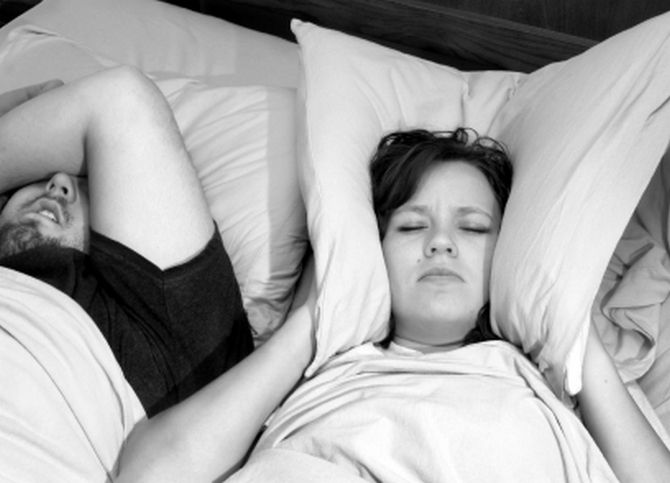 | « Back to article | Print this article |
While snoring can be harmless, it can also be a sign of sleep apnea, a potentially serious sleep disorder in which breathing starts and stops over the course of the night.

Photograph: Renee Moller/Creative Commons
People often say they can get by on five or fewer hours of sleep.
Some believe that snoring is harmless and that having a drink helps you to fall asleep.
According to a recent study, these are among the most widely held myths about sleeping that not only shape poor habits but may also pose a significant health threat.
As part of the study, a team of researchers reviewed more than 8,000 websites to identify the 20 most common assumptions about sleep.
With a team of sleep medicine experts, they ranked them based on whether each could be dispelled as a myth or supported by scientific evidence, and on the harm that the myth could cause.
"Sleep is a vital part of life that affects our productivity, mood, and general health and well-being. Dispelling myths about sleep promotes healthier sleep habits which, in turn, promote overall better health,” said Rebecca Robbins, lead researcher of the study published in the Journal of Sleep Health.
The claim by some people that they can get by on five hours of sleep was among the top myths researchers were able to dispel based on scientific evidence.
They say this myth also poses the most serious risk to health from long-term sleep deficits.
To avoid the effects of this falsehood and others identified in this study, such as the value of taking naps when you routinely have difficulty sleeping overnight, Robbins and her colleagues suggest creating a consistent sleep schedule and spending more time, at least seven hours, asleep.
Another common myth relates to snoring.
While Robbins says snoring can be harmless, it can also be a sign of sleep apnea, a potentially serious sleep disorder in which breathing starts and stops over the course of the night.
The authors encourage patients not to dismiss loud snoring, but rather to see a doctor since this sleep behaviour may lead to heart stoppages or other illnesses.
The study authors also found sufficient evidence in published studies that, despite beliefs to the contrary, drinking alcoholic beverages before bed is indeed unhealthy for sleep.
According to experts, alcohol reduces the body's ability to achieve deep sleep, which people need to function properly.
The researchers acknowledge that some myths still cause disagreement among sleep experts.
For instance, although sleeping in on weekends does disrupt the natural circadian rhythm, for people in certain professions, such as shift workers, it may be better for them to sleep in than to get fewer hours of sleep overall.
Note: Image published for representational purposes only.